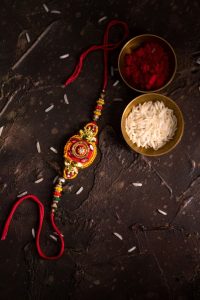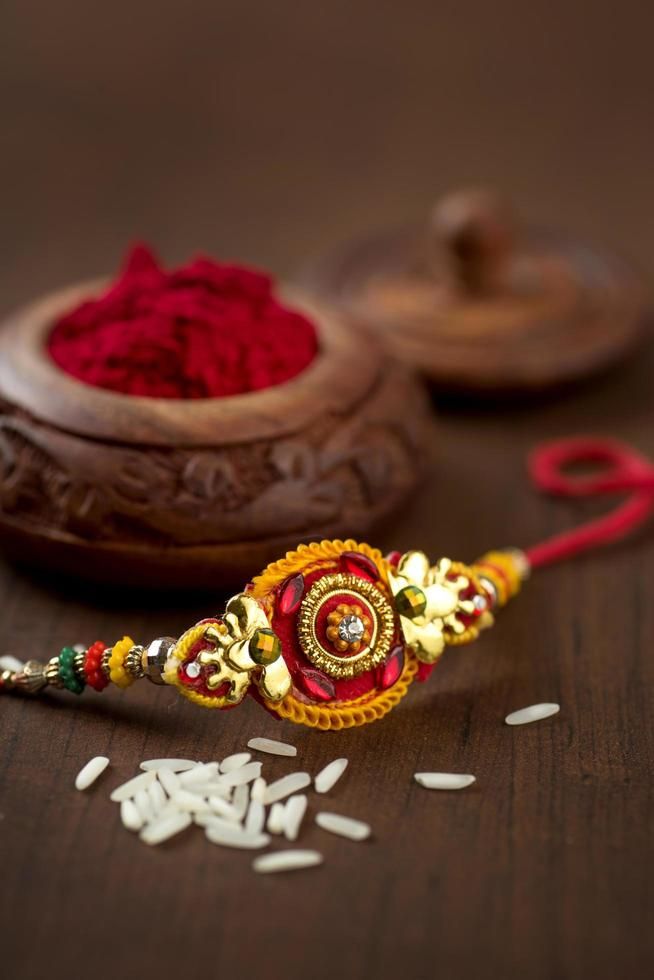Raksha Bandhan: A Historical and Cultural Biography of Sibling Bonds
Raksha Bandhan, commonly known as Rakhi, is more than just a festival; it is a celebration of the timeless bond between siblings. This cherished tradition, steeped in history and cultural richness, has evolved over centuries, yet its essence remains unchanged: the promise of protection and the expression of love between brothers and sisters.

Origins and Historical Significance
The origins of Raksha Bandhan are as diverse as India’s cultural landscape. One of the earliest references is found in the ancient Hindu epic, the Mahabharata. According to legend, Draupadi, the wife of the Pandavas, once tore a strip of her sari and tied it around Krishna’s wrist to stop his bleeding after he injured himself. Moved by her gesture, Krishna vowed to protect her, and thus, the tradition of Raksha Bandhan was born.
Another significant historical reference is from the medieval era, involving Rani Karnavati of Chittor and Emperor Humayun. Facing imminent invasion, Rani Karnavati sent a rakhi to Humayun, seeking his protection. Honoring the sacred thread, Humayun abandoned his military campaign to assist her, exemplifying the power of this bond beyond blood relations.
Cultural Significance and Rituals
Raksha Bandhan transcends religious and regional boundaries in India, symbolizing unity and mutual respect. The festival is marked by various customs and rituals, each adding depth to the celebration. On this day, sisters prepare a thali (plate) with a rakhi, sweets, diya (lamp), and roli (vermilion). After performing an aarti (a ritual of worship) for their brothers, they tie the rakhi around their wrists, applying a tilak (a mark on the forehead) and praying for their well-being. Brothers, in turn, promise to protect their sisters and often give gifts as a token of their love and appreciation.
The act of tying the rakhi is not limited to biological siblings. It is common for cousins, and even friends, to participate, thereby broadening the scope of the celebration. The festival fosters a sense of responsibility, care, and mutual respect, reinforcing familial and social bonds.
Evolution and Modern Celebrations
Over the years, Raksha Bandhan has adapted to changing times while retaining its core values. In contemporary India, the festival is celebrated with great enthusiasm. Families gather for festive meals, and the exchange of gifts has become an integral part of the festivities. Online shopping and digital rakhis have made it possible for siblings separated by distance to participate in the tradition.
Moreover, the festival has found new relevance in today’s social context. It is not uncommon for women to tie rakhis to soldiers, police officers, and other protectors of society, symbolically extending the circle of protection and gratitude beyond familial ties.
Symbolism and Deeper Meanings
At its heart, Raksha Bandhan embodies the universal themes of love, protection, and duty. The rakhi, a simple thread, carries profound symbolism. It represents the invisible threads of affection and responsibility that bind siblings, reminding them of their commitments to each other.
The festival also highlights the importance of female empowerment and respect. By celebrating the bond between brothers and sisters, Raksha Bandhan reinforces the idea that women are to be cherished and protected, not just by their families but by society as a whole.
Global Influence and Diaspora Celebrations
With the Indian diaspora spread across the globe, Raksha Bandhan has transcended geographical boundaries. Indians living abroad celebrate the festival with the same fervor, often sharing the tradition with their non-Indian friends and neighbors. This cultural exchange has led to a greater appreciation and understanding of Indian customs worldwide.
In many countries, Raksha Bandhan has become a symbol of cultural diversity and inclusivity. It is celebrated in schools, community centers, and public events, where people from different backgrounds come together to honor the spirit of siblinghood.
Conclusion
Raksha Bandhan, with its rich historical and cultural tapestry, continues to be a cherished festival that celebrates the enduring bond between siblings. It is a reminder of the timeless values of love, protection, and respect that bind families and societies together. As we celebrate Raksha Bandhan, we not only honor our siblings but also reaffirm our commitment to the values that strengthen our relationships and communities.
In a world that is constantly evolving, the essence of Raksha Bandhan remains a comforting constant, a beautiful reminder of the bonds that truly matter.
